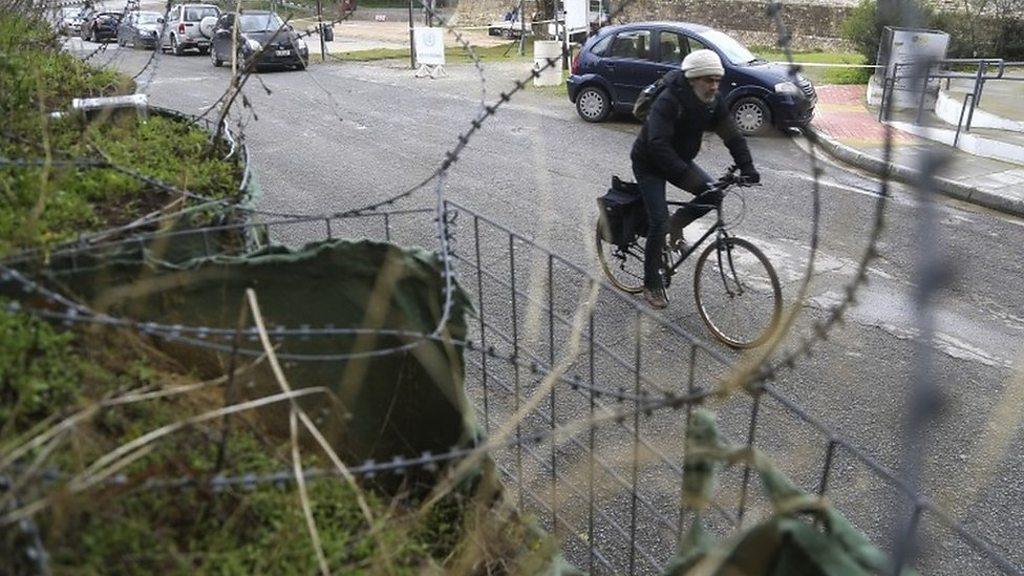Cyprus peace talks 'resolve many issues'
- Published
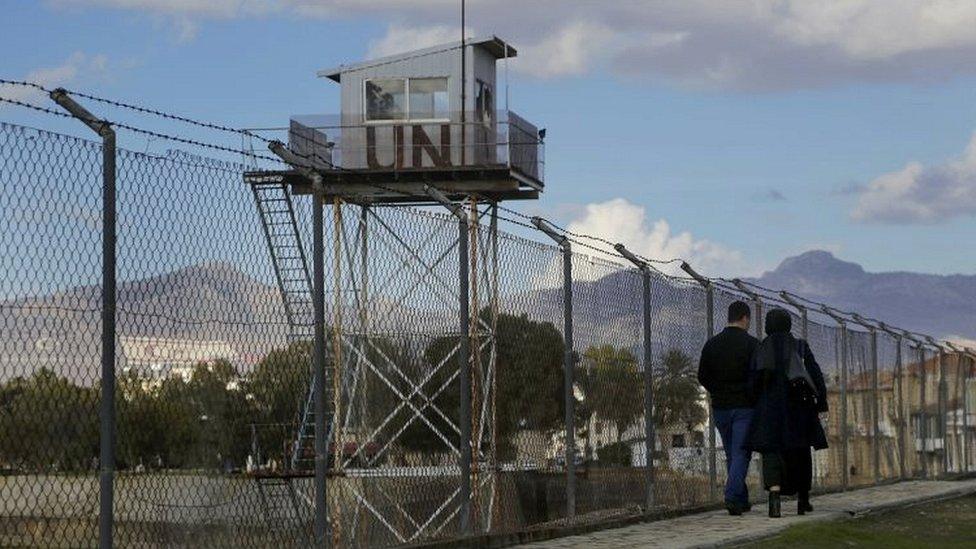
Any peace deal will be put to both Greek and Turkish Cypriots in separate referendums
Greek and Turkish Cypriot leaders are discussing territorial trade-offs as peace talks to reunify the island reach a crucial juncture.
For the first time in over a decade, both sides plan to submit maps to the United Nations (UN) on Wednesday with new boundary proposals.
If a deal can be agreed, it could be put to both communities in separate referendums this year.
The goal is for the two sides to share power in a two-state federation.
Cyprus has been split since Turkish troops invaded more than 40 years ago following an Athens-inspired coup by Greek Cypriots seeking union with Greece.
The northern third of the island is inhabited by Turkish Cypriots and the southern two-thirds by Greek Cypriots.
UN envoy Espen Barth Eide said "there is still work to do" on the talks, but that many issues dividing the two sides had been resolved.
"We have touched upon almost all of them, we have solved many of them, and we are close to resolving some other issues," Mr Eide told journalists.
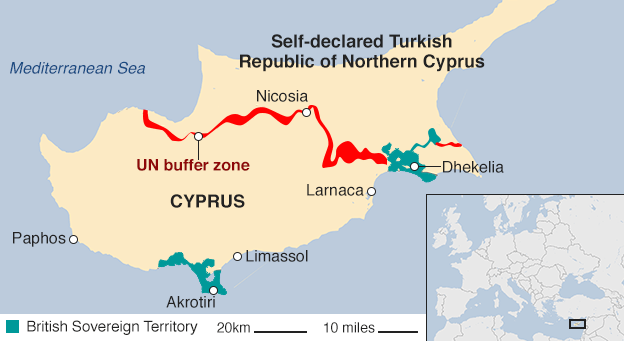
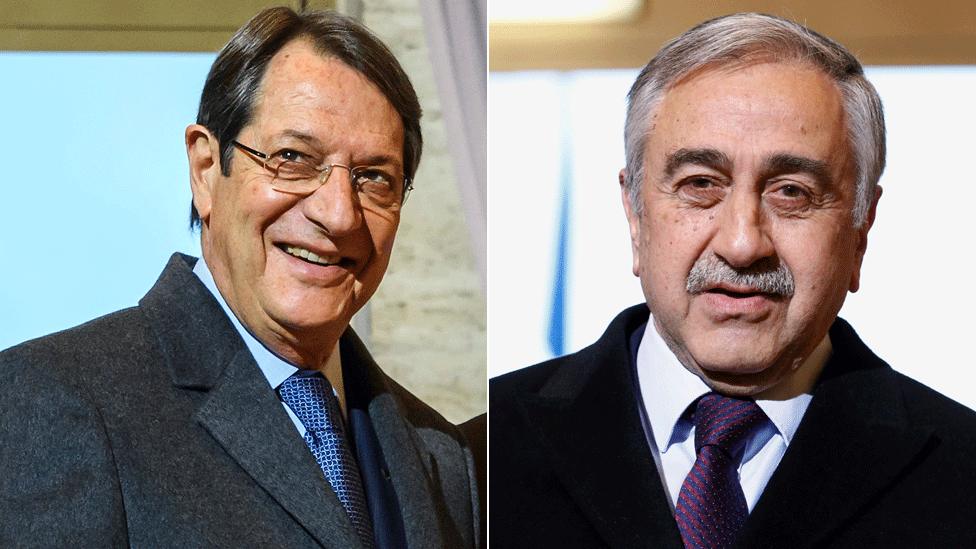
Nicos Anastasiades (L) and his Turkish Cypriot counterpart Mustafa Akinci have held three days of talks in Geneva
The current round of discussions began in 2015, and moved to Geneva on Monday.
Greek Cypriot leader Nicos Anastasiades and Turkish Cypriot leader Mustafa Akinci are said by diplomats to be deeply committed to achieving a deal.
President of the European Commission Jean-Claude Juncker said he hopes the talks can conclude on Thursday in Geneva "in a positive way".
The foreign ministers of Greece, Turkey, and the UK will meet on Thursday to discuss the security issues that could govern a deal.
The three countries are guarantor powers of Cyprus, which means they can step in if necessary to restore constitutional order.
Could there be an end to decades of division?
Turkey has 30,000 troops in northern Cyprus, and Greece argues that no deal is possible unless they leave.
A previous UN reunification plan was backed in 2004 by a majority of Turkish Cypriots but overwhelmingly rejected by Greek Cypriots.

Read more

What are the sticking points?
Property: Top of the agenda at Monday's talks was what should happen to the properties that Greek Cypriots had to abandon in 1974. Should they get the right to take their old homes back, or be compensated - and if so by how much?
Security: How can the security of the Turkish Cypriots be guaranteed if Turkey's estimated 30,000 troops leave? Greek Cypriots see them as an occupying force, so should some stay or should Turkey retain the right to intervene?
Who would act as a guarantor of the deal? The EU, of which Cyprus is already a member, or the UK, which has two military bases on the island?
Power and the role of the EU: There is talk of a rotating presidency, but how would that work? And could a Turkish Cypriot president really represent the country from time-to-time at EU summits?
Territory: How much more territory should Greek Cypriots gain to reflect the fact that they make up the majority of the island's population? UN peacekeeping forces estimate that 165,000 Greek Cypriots fled or were expelled from the north, and 45,000 Turkish Cypriots from the south, although the parties to the conflict say the figures are higher.
For more than 40 years Cyprus has been a divided island.
- Published9 January 2017
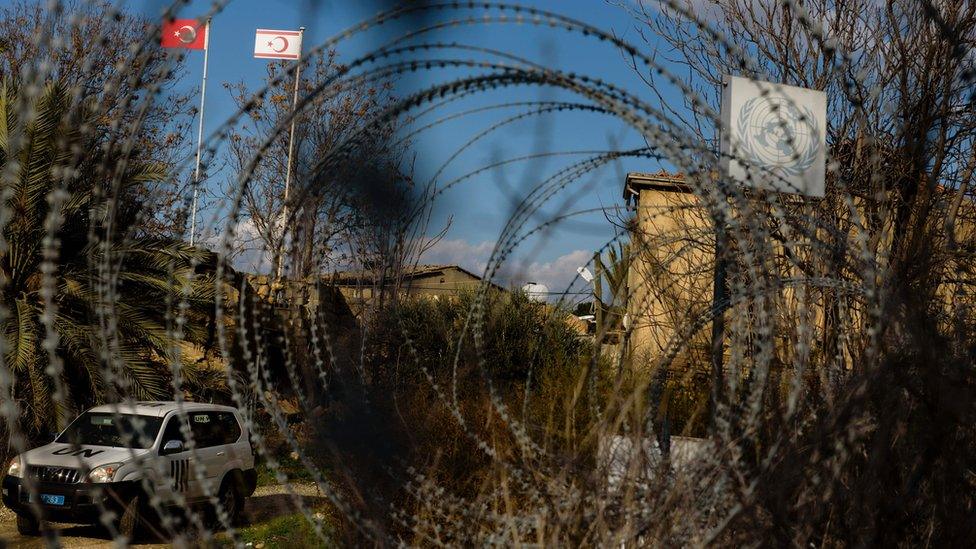
- Published11 January 2017
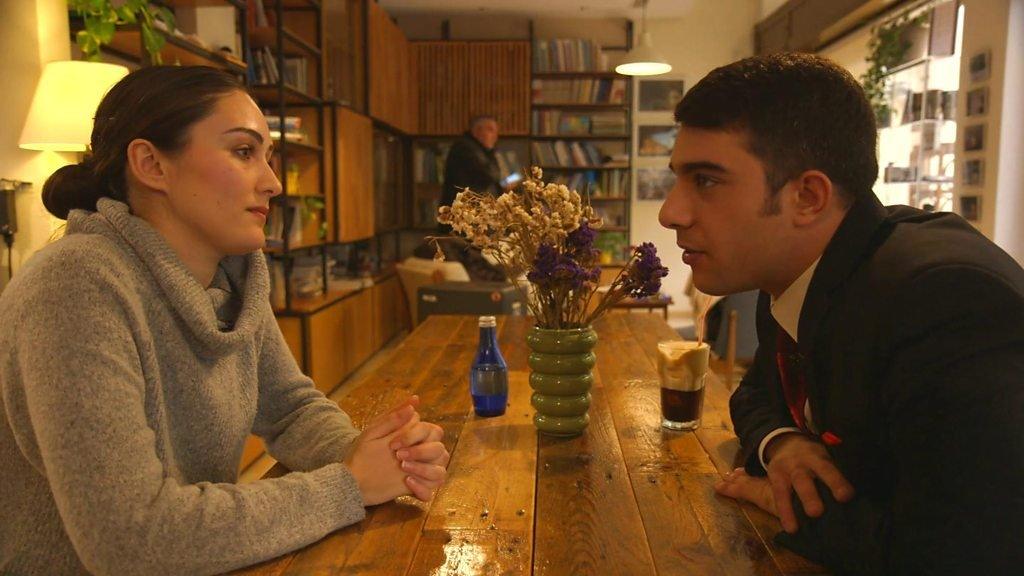
- Published8 January 2017
- Published10 January 2017
